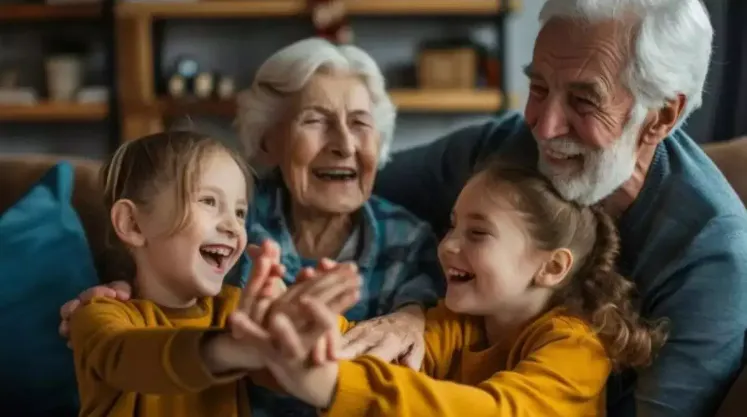Helping Your Kids and Their Great-Grandparents Interact

Intergenerational relationships are invaluable, providing both young and old with unique perspectives and enriching experiences. Facilitating interactions between your kids and their great-grandparents can foster deep emotional connections and create cherished memories. Here are some effective strategies to help nurture this special bond.
Understanding the Importance of Intergenerational Relationships
- Emotional Connection: Kids benefit from the wisdom, stories, and unconditional love that great-grandparents offer. This bond can enhance a child’s sense of identity and belonging.
- Learning and Growth: Great-grandparents provide a link to family history and traditions, helping children understand their heritage. They also teach patience, respect, and empathy through their interactions.
- Combatting Loneliness: For great-grandparents, spending time with younger family members can reduce feelings of loneliness and keep them mentally and emotionally engaged.
Practical Tips for Facilitating Interactions
- Schedule Regular Visits: Plan regular visits to ensure consistent interaction. Whether weekly or monthly, having a set schedule can help both parties look forward to their time together. Fairview Court is one of the care homes in Kingswood, Bristol and encourages fmaily visits in lovely surroundings.
- Shared Activities: Choose activities that both generations can enjoy. Simple games, puzzles, and crafts can be engaging for kids and manageable for great-grandparents. Baking cookies, gardening, or storytelling sessions can also be delightful and educational.
- Technology: Use technology to bridge physical distances. Video calls, sharing photos and videos, and even playing online games together can keep the connection strong. Teaching kids to use technology can also be a fun and empowering activity for great-grandparents.
- Family Projects: Engage in family projects that involve both generations. Creating a family tree, compiling a photo album, or writing a family history book can be rewarding projects that provide valuable learning experiences for children and a sense of legacy for great-grandparents.
Communication Strategies
- Active Listening: Encourage kids to actively listen to their great-grandparents’ stories and experiences. This not only shows respect but also helps children develop listening and comprehension skills.
- Ask Open-Ended Questions: Teach kids to ask open-ended questions that prompt great-grandparents to share their memories and wisdom. Questions about their childhood, favorite memories, and life lessons can lead to enriching conversations.
- Patience and Understanding: Explain to kids that their great-grandparents might move or speak more slowly. Encourage patience and understanding, emphasizing the importance of kindness and respect.
Making Interactions Meaningful
- Celebrate Traditions: Incorporate family traditions and cultural practices in your interactions. Celebrating holidays, cooking traditional meals, and practicing customs can deepen the bond and instill a sense of cultural heritage in children.
- Document Memories: Encourage kids to document their time with their great-grandparents through drawings, writings, or videos. These keepsakes can become treasured memories and serve as a beautiful reminder of their relationship.
- Health and Safety: Ensure that activities are safe and suitable for the great-grandparents’ health and mobility. Adapt activities to their physical abilities and consider their comfort at all times.
Support and Resources
- Educational Materials: Use books, videos, and other resources to educate children about the aging process and the value of intergenerational relationships. This can foster empathy and understanding.
- Community Programs: Look for community programs that support intergenerational activities. Many communities offer events and workshops designed to bring different generations together.
- Professional Advice: If there are any specific challenges, such as health issues or communication barriers, seek advice from professionals. Social workers, gerontologists, and child psychologists can offer valuable insights and strategies.
Conclusion
Facilitating interactions between kids and their great-grandparents can create lasting bonds and offer invaluable life lessons. If you follow the steps above, you will help build a strong, loving relationship between the generations. This connection not only enriches the lives of both young and old but also strengthens family ties and preserves precious memories for the future.


